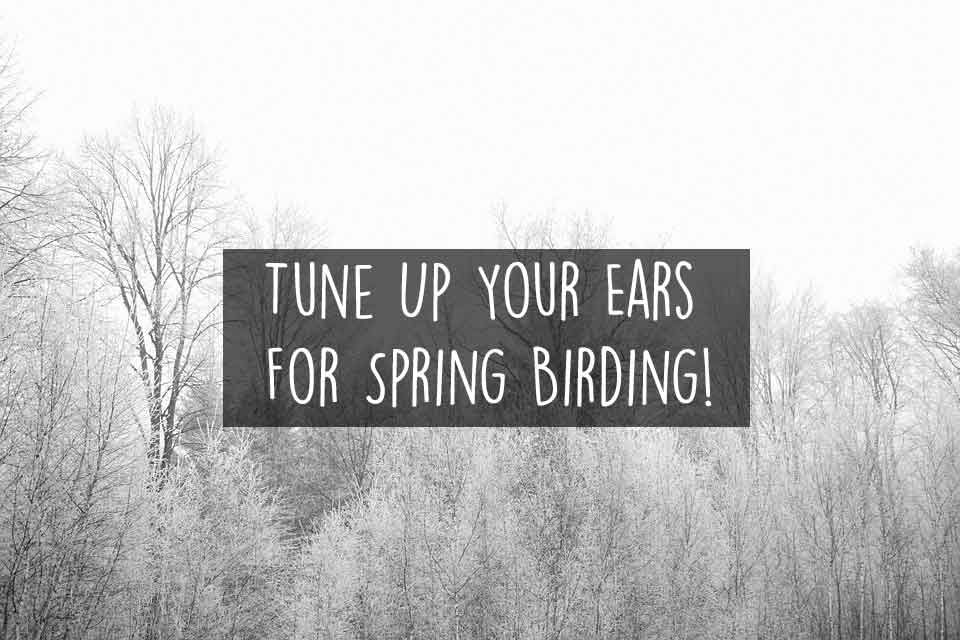Offer
Provide additional details about the offer you're running.
Provide additional details about the offer you're running.
Provide additional details about the offer you're running.

Spring?
Yes, it might not seem terribly apparent at first glance. If you reside here in eastern Ontario, the word likely has not been introduced to your vocabulary since way back in 2018. Despite our inability to momentarily remember the smell of fresh-cut grass, birds chirping and the smell of a fresh campfire, the fact is; it’s coming (we promise).
While we certainly love the winter months and the birding opportunities it presents (hello, finches!), at Gilligallou, we are always instituting forward thinking (our new website, for one!). As such, as we roll into the month of March, we thought there is no better time than now to give our flock a spring primer into some of the more popular bird calls and songs winter makes us miss so dearly.
Play along below:
Currently Speaking…
So, what’s happening out there now? Well, it’s definitely still winter. A look to our local weather forecast will confirm that for all those that remain curious. All that aside, our birds are already beginning the transition to the “spring market”. Chickadees for one have begun to burst into song as well as one of our other favourite winter birds, the Northern Cardinal. Have you heard them?

Keep your ears fresh, you’ll hear even more over the coming weeks as some of our early nester begin to do plan for their new batch of hatchlings.
But My Birds Are Missing!
We’ve heard this and experienced it at our home to some degree as well. Being connected via social (say Hi to us in our Facebook Group) gives us a glimpse into local birding not only here in the Ottawa area but across North America.
If a book allows the reader to borrow someone else’s mind, social media and the interwebs give us a unique window into the world of birding on a first-hand account. In addition to checking in on sightings for particular species on eBird, we’ve heard a lot of folks making noise about a lack of birds in their area.
It’s ok.
The month of January was tumultuous and wrought with extreme cold and large amounts of snow. Just the same as we have a tendency to fly south this time of year, many of our birds do the same. No, they don’t all end up in the lush, tropical jungles of south or central America but they do end up in southern regions of the province or more exotic locations such as Upstate New York and New England.
Many of our American Goldfinch, for example, have done this and will continue to do this in search of better temperatures and more importantly, better food sources. It’s all part of what our natural world does to survive and is nothing to panic about.
Our advice?
Remain vigilant and keep those feeders filled. The birds will return, as will slightly warmer temperatures, the serene sounds of bird songs and May (June) flowers.
High Quality Blend